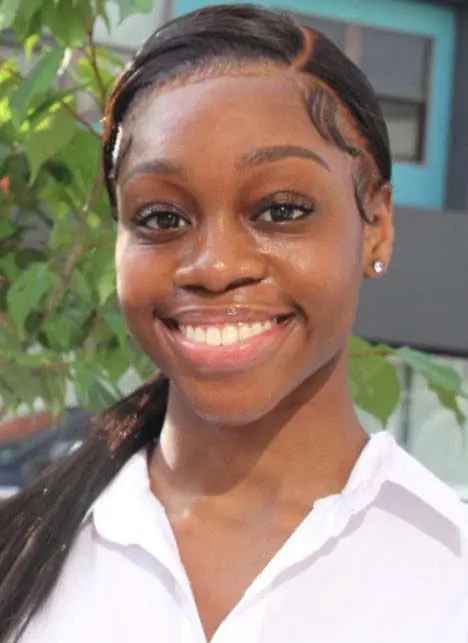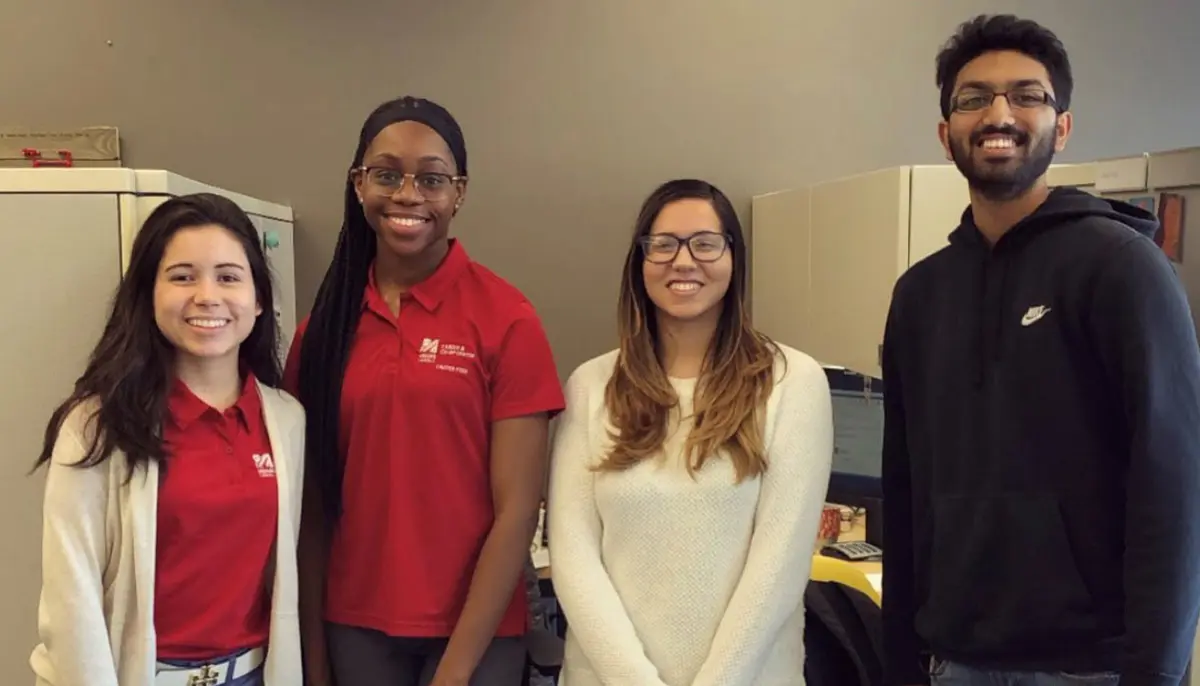Kristina Ogbarmey-Tetteh took advantage of the Zuckerberg College of Health Sciences’ Student Resource Center when she began to study nursing.
The center offered peer tutoring and other study resources, including model skeletons, hearts and limbs like the ones she used in her lab classes for Human Anatomy and Physiology, a required course for all first-year health sciences majors.
Ogbarmey-Tetteh, a strong student, wanted guidance on how to study effectively. Soon, she formed a study group with friends. As a junior, she became a tutor in the new Health Sciences Hub.
“The peer tutors are more knowledgeable and can give you more personal advice on ways you can best study,” she says.
Ogbarmey-Tetteh came to UMass Lowell for its highly regarded nursing program. In high school in Worcester, Massachusetts, she enjoyed science, especially biology, and knew that she wanted to work in health care.
“I knew that I liked working amongst a team,” she says. “I liked caring for people and making sure that people were happy and quality of care was attended to, so I decided nursing was a good fit.”
At UMass Lowell, she also greatly enjoyed her public health classes. She says they helped her to understand how the health care system works – and where it fails. As a sophomore, Ogbarmey-Tetteh added a minor in public health, which became even more relevant when the COVID-19 pandemic began in early 2020. She also joined a new club on campus, Advocates of Health Equity for Minorities (AHEM).
“As nurses, we’re caring for the patients, but we don’t always know enough about their financial and social status and how it might be hindering their care,” she says. “Public health … tries to prevent bias, so it gives you a more well-rounded view of your patients.”
In addition to serving as treasurer of AHEM, Ogbarmey-Tetteh co-founded another organization to support students seeking careers in health care, Minorities in Health Science, and served as its second president. She also served as secretary of the Public Health Club and as a senator representing the Zuckerberg College of Health Sciences in the Student Government Association.
“I wanted a greater representation for my college, especially as a minority,” says Ogbarmey-Tetteh, whose parents immigrated to the U.S. from Ghana. “I want to leave my mark before I head on to further education and the real world.”
And leave a mark she did. Her efforts were recognized by a 2022 Martin Luther King Jr. Service Award from the Office of Multicultural Affairs and the 2022 Excellence in Student Advocacy Award from Student Services.
Ogbarmey-Tetteh has benefitted from scholarships, including the external RaiseMe Scholarship and the Solomont Family Nursing Scholarship.
“It’s always important to learn more and do more in your field,” she says. “It would give me more autonomy, and I’d be able to have a greater impact on my patients’ lives.”


